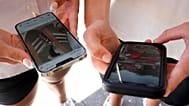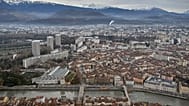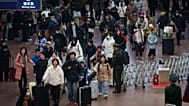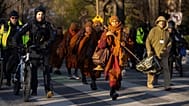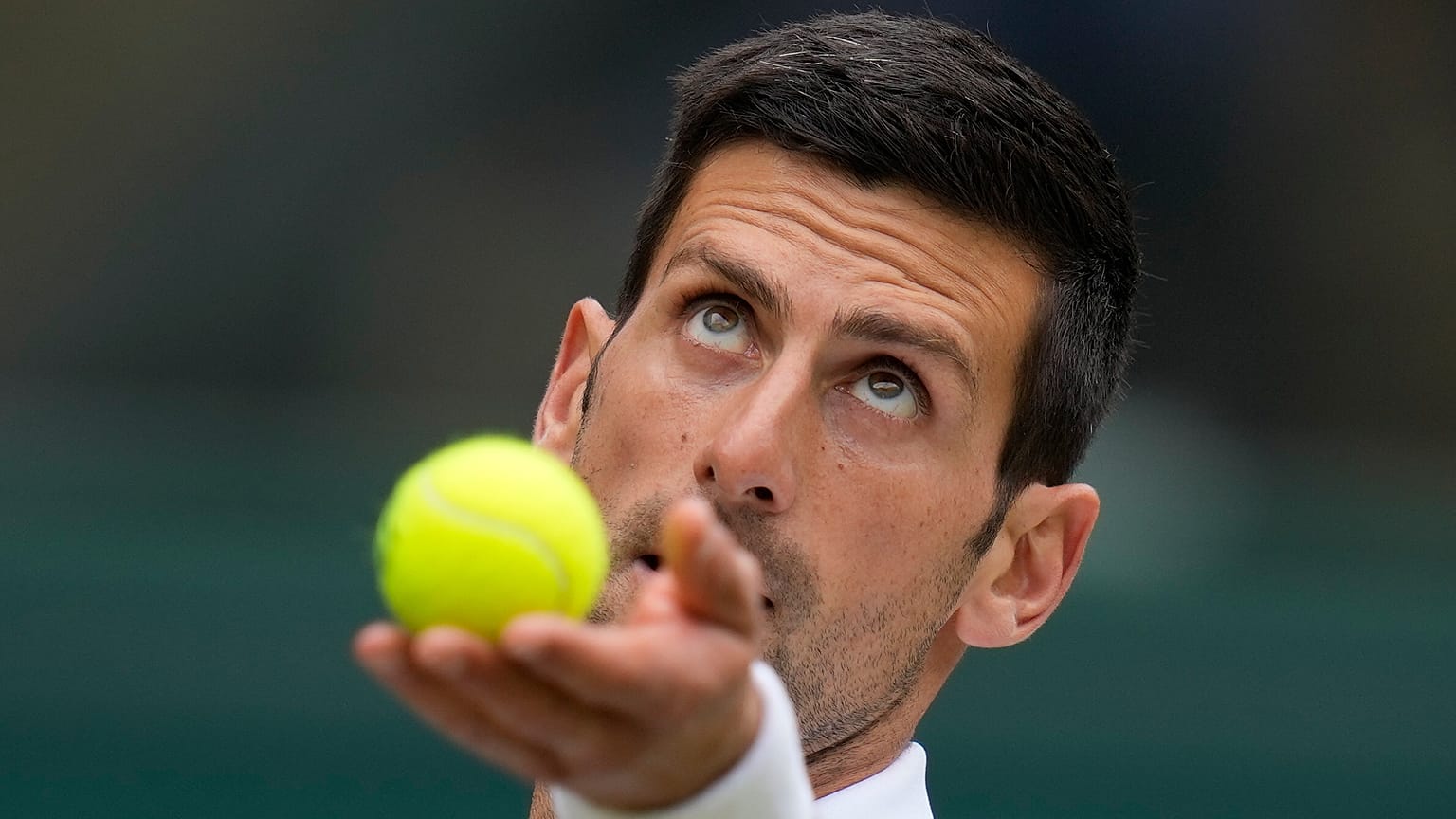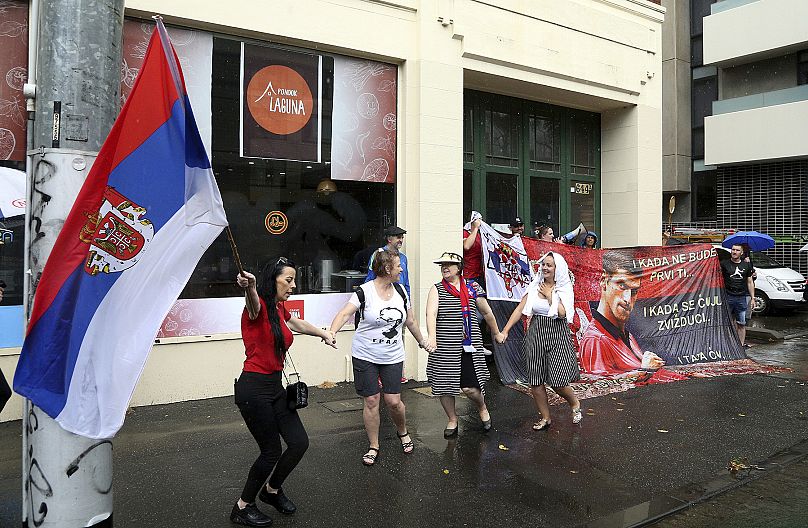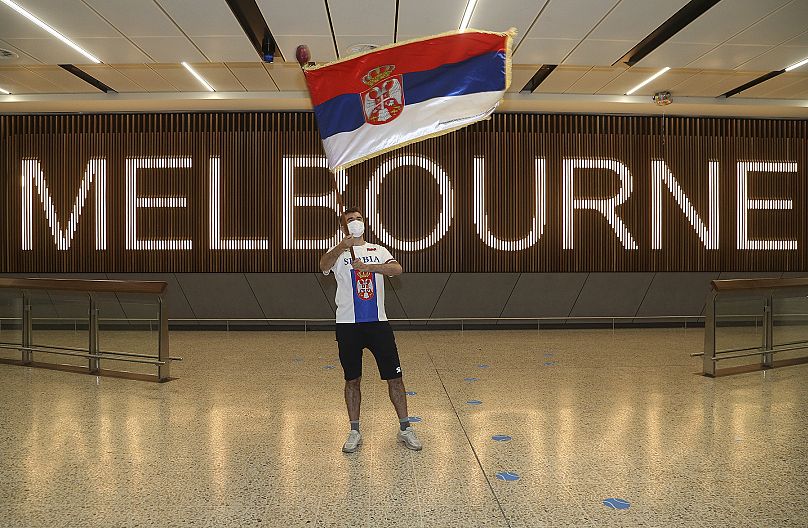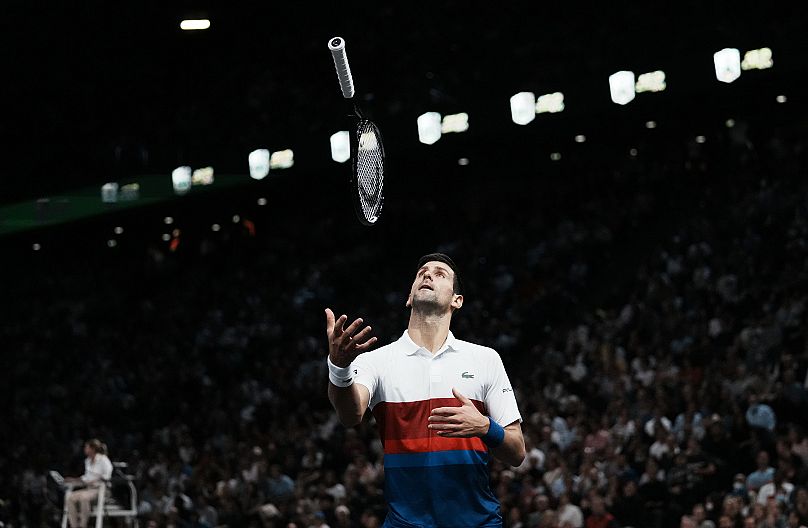After the tennis world No. 1 was refused entry into Australia to compete at 2022's first Grand Slam, his conspiracy theorist and nationalist beliefs came to the fore once again.
The world got to witness a different, lesser-known side of one of history’s most successful tennis players at the start of this week’s Australian Open.
Chasing a record 21st Grand Slam, Novak Djokovic — the reigning number 1 tennis player in the world — was denied entry by the Australian authorities for failing to provide evidence in support of the medical exemption he received from the Australian Open organisers.
After being kept at Melbourne airport for several hours, he was first asked to leave but then ended up being placed at a centre for asylum seekers as his legal team mounts a legal challenge to his denial of entry. On Monday, Australia's Federal Circuit Court set him free, but Australia's immigration minister could yet again cancel his visa.
Djokovic has been publicly sceptical about the jab since the early days of the pandemic, and it is widely understood that the reason regional Victoria authorities denied him access to the tournament was that he did not provide proof of vaccination or proof of a founded medical condition that would make vaccination impossible.
The scandal has escalated into a global media sensation and Djokovic’s actions have provoked widespread scorn as many countries fight to increase their vaccination rates amid a fifth pandemic wave of lockdowns and safety measures.
For anti-vaxxers and COVID-sceptics, Djokovic has become a hero of not bowing to the establishment, or as his father Srđan put it in a statement to Serbian media outlets soon after his son was denied entry, “the Spartacus of the new age.”
Tennis superstar versus pyramid hugger
“Djokovic was always like some kind of Dr Jekyll and Mr Hyde,” said Sorin Cucerai, a political commentator from Romania.
“There are two sides to Djokovic. One side is ‘Nole’ — a fabulous tennis player who did a great deal for sports and tennis in particular, someone who had a very positive influence on tennis on many levels.”
Nole is a pet name for Novak common in Djokovic’s native Serbian.
And in his native Serbia, Djokovic is by far the most popular sports star, widely lauded for both his tennis achievements as well as a number of domestic and regional humanitarian actions. He and his wife, Jelena Djokovic, set up the Novak Djokovic Foundation (NDF) which focuses on early childhood education.
Famously, the NDF donated some of Djokovic's tournament earnings to UNICEF to help the most affected areas after the devastating 2014 floods that struck Serbia, but also Bosnia and Croatia.
“On the other hand, you have, let’s call him ‘Novax’. A very strange guy with weird New Age beliefs, that he displays from time to time, and also a conspiracy theorist,” explains Cucerai, a moral and political philosopher and associate researcher at GlobalFocus Center, a Bucharest-based think tank focusing on propaganda, disinformation, and illicit influence in the region.
“Nole and Novax existed from the very beginning. But most of the time, Nole takes prominence. Everybody sees the fabulous tennis player.”
“Every now and then, Novax takes prominence, like in this incident in Australia,“ Cucerai said.
Djokovic has had brushes with esoteric beliefs and, often, sheer conspiracy theories. From his belief in purifying water with emotions, where he claimed to have met and seen “people who have used energy transformation, through the power of prayer and gratitude to turn even the most toxic food and water into water with curative powers”, to his visits to the pyramids in Visoko, Bosnia — a mountain in the town is the centre of well-documented hoax — where he goes to charge his body with positive ions.
Novak the superspreader?
After he organised a tournament in Zadar, Croatia, in the midst of the pandemic in an attempt to prove that the world can continue to function normally in the face of COVID-19, Djokovic was forced to apologise after many of the participants tested positive, including him.
But his April 2020 words revealed his deep-set disdain for vaccines.
“I am personally against vaccines and I wouldn’t want anyone to force me to take one so I can travel. If this turned out to be a rule and law, what will happen then?” he said in a live chat with his Davis Cup teammates.
“For him, it’s kind of messy, if you ask me,” Cucerai said.
“Because psychologically, he needs Novax. He does fabulously when the audience is against him, and he needs his Novax personality to keep fighting and keep winning tournaments.”
“He’s not as liked as [Roger] Federer or Rafa Nadal, and he’s not liked by the Western public. However, the other side of the story is that his views are dangerous, in a sense that he is clearly also a Serbian nationalist,” Cucerai pointed out.
In 2021, Djokovic found himself criticised for his visit to Bosnia after photographs surfaced of his meeting with a commander of the “Drina Volves”, a unit that took part in the 1995 Srebrenica genocide where more than 8,000 Bosniak men and boys were summarily executed over the course of three days in July solely for their nominal Muslim faith.
Later on, a video showed Djokovic singing at a wedding, embraced by the Bosnian Serb nationalist leader Milorad Dodik, whose separatist tendencies are currently causing the biggest crisis in the country since the end of the 1992-1995 war.
His stances on Kosovo are widely known. The former province of Serbia that broke away after the 1999 NATO bombing and a decade of ethnic cleansing policies against ethnic Albanians spearheaded by Slobodan Milošević is a weak point for many Serbian nationalists and politicians.
After large protests broke out in Belgrade over Kosovo’s declaration of independence in 2008, Djokovic famously recorded a video saying “We are prepared to defend what is rightfully ours. Kosovo is Serbia.”
Asked in 2011 whether he regretted his actions, he told German magazine Der Spiegel “it is the birthplace of my family and, indeed, of Serbian culture itself.”
“I don’t regret what I did. We want justice, but we just can’t get it,” he said.
After the Serbian national team won the ATP Cup in 2020, Djokovic, together with his teammates, sang nationalist songs, including “Vidovdan” — a common tune about Kosovo that featured prominently during the wars of the disintegration of Yugoslavia.
At the time, his father Srđan came to his defence with a controversial statement. “Novak is a nationalist, of course, and so am I,” he told Serbian outlets.
“That’s not a bad thing at all. We love our people and our country, we don’t hate any other people or another country.”
‘You hate Nole because you hate Serbs’
While he was held at the Melbourne airport, Srđan claimed in an Instagram post that his son was being targeted by Australian authorities for his Serbian ethnicity.
“Tonight they can throw him in a dungeon, tomorrow they can put him in chains.”
“They can’t stop him on the court, so they decided to stop him at the airport,” Srđan Djokovic wrote, saying that people should welcome Novak back to Serbia “like he deserves.”
On the next day, at a press conference in Belgrade Srđan said that “[Novak] is being kept in captivity… Novak is Serbia and Serbia is Novak. When trampling over Novak, they are trampling over Serbia and Serbian people.”
“Jesus Christ was crucified, but he withstood and still lives among us, and Novak is also being crucified,” Srđan said on Orthodox Christmas Eve, celebrated on January 6.
Serbian president Aleksandar Vučić also reacted on Instagram, describing the decision of the Australian authorities as a form of “harassment”.
Since his Australian ordeal began, Djokovic made only one public statement, via an Instagram story on his profile.
“Thank you to my family, Serbia and all the good people in the world who are sending me support. Thank the dear Lord for my health,” Djokovic wrote in the post.
His PR told Euronews that Djokovic will not comment on any subject until his appeal process is over.
A number of regional public figures who are known for their vaccine scepticism, such as actor Branko Đurić Đuro and the businessman and amateur archaeologist who is behind the faux Bosnian pyramids, Semir Osmanagić, expressed their support for Djokovic.
For Cucerai, Djokovic’s embracing of nationalism goes hand in hand with his interest in conspiracy theories.
“Essentially in an abstract form, nationalism is a conspiracy theory according to which some foreign, occult force is trying to harm your country,” he said.
A product of his childhood
Bosnian-American journalist and novelist Aleksandar Hemon believes that Djokovic espouses common tropes found among supporters of Serbian nationalism because he grew up as Yugoslavia was falling apart.
The former socialist federation included today’s Slovenia, Croatia, Bosnia and Herzegovina, Montenegro, Serbia, Kosovo, and North Macedonia and disintegrated in a series of the bloodiest wars seen in Europe since World War II.
Hemon, an author of several acclaimed novels on the post-war Yugoslav identity and society, explains that Djokovic’s actions play into the expectations of what a national hero should represent — figures he likely grew up idealising as a boy — and that he is rewarded for his actions in the form of reverence received by Serbs and others globally.
“He is not quite capable of imagining himself outside this nationalist national identity. It doesn’t necessarily mean he is an aggressive propagandist, but he certainly complies and has met such propagandists,” Hemon, a professor at Princeton University**,** told Euronews.
And a lot of his actions — and beliefs, be it nationalist or anti-establishment — come down to the fact that he grew up in a country where rampant nationalism turned toxic and even bloody.
“I think it’s symptomatic of a generation, generations even, in the region that is entirely incapable of seeing itself or understanding one’s own personality and what constitutes one’s identity outside of the simplest, stupidest nationalist context. And that’s tragic,” Hemon explained.
In the context of 1990s Serbia, Djokovic’s public beliefs are simply following an already established pattern, he explains.
“I remember this before the war in the 1990s when Nikola Tesla suddenly became a nationalist hero [even though Tesla] was not interested in any of that [in his lifetime].”
“And then there were all these fantasies about secret weapons, and serious people, public personalities would talk about it and claim that Serbia has lasers that could defeat NATO aeroplanes that Tesla left as his heritage to the country,” Hemon recalls.
“I remember reading this in previously reputable publications and thinking, ‘who in God’s name would believe this? I mean, this is insane.’ And then you find out that people do believe it.”
Nationalists are common bedfellows of esoterics and those who believe in the occult, Hemon clarifies since the two share the distinct conviction in being right when others are wrong, even when facts prove otherwise.
“The interesting thing is, it’s common in nationalist movements in the world right now — this interest in anti-scientific, New Age-y, mythologies. Because in some ways, nationalism is all make-believe, it’s a fairy tale.”
“So it’s easy to slip into fantasies of energies and fairy tales and world conspiracies, and all that. The fantasy-building approach works in terms of both national identity and medical interventions,“ he said.
“His public status gives value to that nonsense he talks about. Public value is also public responsibility, but he refuses that responsibility,” Hemon said.
“That selfishness, that kind of fanatical individualism works in tennis if you’re the best player. But it’s detrimental to the notion of public good because there’s no public good for him, there’s only personal good. He wins or he loses. But what about the rest of us?”
Every weekday, Uncovering Europe brings you a European story that goes beyond the headlines. Download the Euronews app to get a daily alert for this and other breaking news notifications. It's available on Apple and Android devices.

